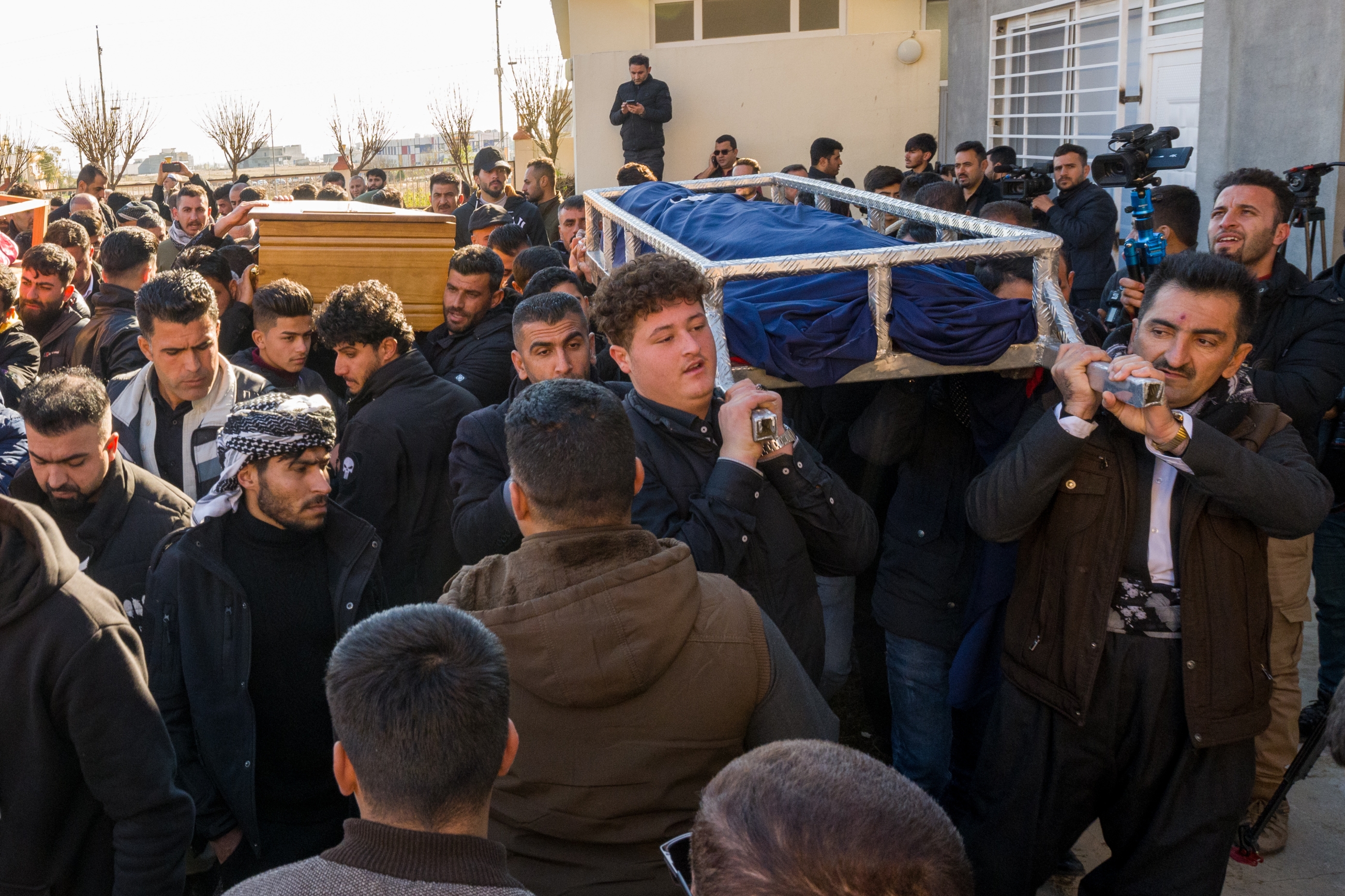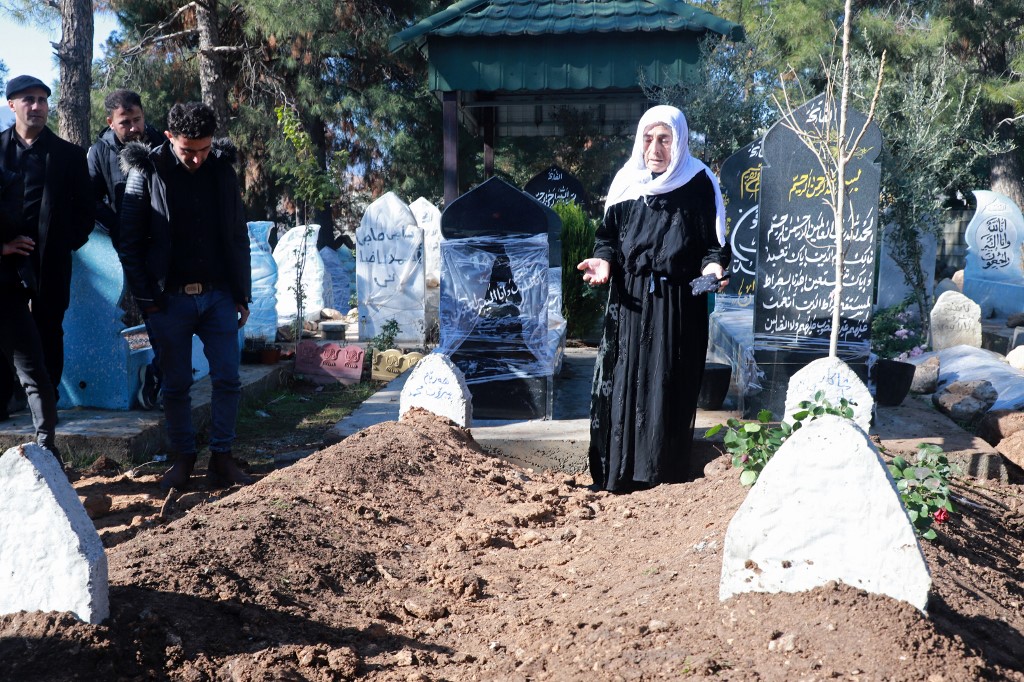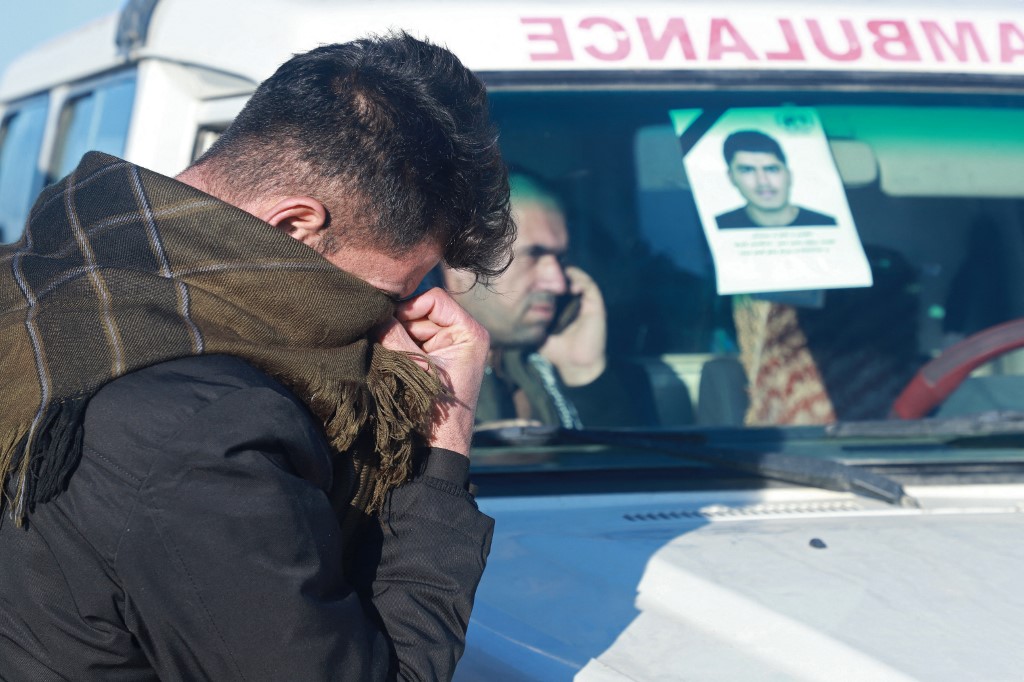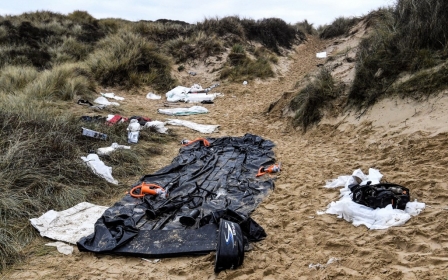Bereaved Iraqis receive bodies of 16 killed in Channel disaster

Families of the 16 Iraqis who drowned when their boat sank while crossing the Channel last month received their bodies on Sunday at Erbil airport in northern Iraq.
The bodies were among 27 people who died on 24 November while trying to cross from France to England, the deadliest single disaster in recent years on this intensively used maritime migration route to the UK. Most of those who died were Iraqi Kurds.
'The reason for Shakar's migration was the lack of job opportunities here'
- Osman, uncle of boat disaster victim
A Middle East Eye photographer said the plane arrived at around 1am (21:00 GMT) at Erbil airport in Iraqi Kurdistan. The flight was originally scheduled for Friday but was delayed to Sunday.
French NGO Utopia 56 on 20 December said it had filed a complaint of manslaughter against rescue services in Britain and France for not helping to save the people who drowned.
Two people who survived the incident, as well as relatives of the victims and people who crossed on the same day, told Utopia 56 that British and French rescue services ignored distress calls made before a French fishing trawler eventually found them.
New MEE newsletter: Jerusalem Dispatch
Sign up to get the latest insights and analysis on Israel-Palestine, alongside Turkey Unpacked and other MEE newsletters
The MEE photographer accompanied the mourning families as they waited for the bodies of their loved ones.
One of those waiting was the uncle of 30-year-old Shakar Ali Perot, whose body was among those repatriated. He said his nephew made the risky journey searching for a better life.
"The reason for Shakar's migration was the lack of job opportunities here. There were no jobs for him, neither in the government nor in the private sector due to the financial crisis," the uncle, Osman, told MEE.
Perot hailed from Raniya district in Sulaymaniyah governorate, in the autonomous Kurdistan Region. He graduated three years ago with a bachelor's degree in petroleum geology engineering.
Among the dead were seven women, a seven-year-old child, and a 16-year-old. Four Afghan men, three Ethiopians, a Somalian, an Egyptian, and an Iranian Kurd also died in the incident.
'I borrowed money to pay for his trip'
Huker Safar, the cousin of 20-year-old victim Blend Shukr Bakr, said Bakr sought work in Britain as a barber.
Bakr's journey to Europe began on 27 October, when he left for Syria, heading after that to Belarus to reach Germany, where he stayed for several days, and then left for France to take the boat to England.
He spoke to his father by phone for the last time on the night of 24 November, but then their connection was lost forever, the cousin told MEE on Sunday.
The father got confirmation that his son was among those who drowned after a DNA test result was sent to French authorities.
The father of another victim, Afrasiab Ahmed Muhammad, said his son was 27 years old, also from Raniya.
"I borrowed money to pay for his trip to Europe so he could find work opportunities there," he told Middle East Eye.
Khader Muhammad, the brother of 34-year-old Hassan Muhammad Ali from Sulaymaniyah, said Ali was a bus driver and also travelled looking
for a better job.
"We knew following a DNA test that he had drowned," he told MEE at Erbil airport.
An Iraqi survivor told Utopia 56 that at least 33 people were on board the boat before it capsized.
Utopia 56 has criticised France for focusing its investigation on human traffickers and not on the relevant authorities.
Britain has not opened an investigation but said on 24 November that it had received more than 90 alerts from the Channel area, including emergency 999 calls.
People currently in France are able to apply for UK asylum only if they are physically in Britain. Many, therefore, attempt the journey with its dangerously strong currents in flimsy boats.
According to the French authorities, at least 31,500 people have attempted the crossing to Britain this year, with 7,800 people rescued at sea. The rate of crossings has doubled since August.
The tragedy has sparked a diplomatic row between France and the UK over the issue of people using the migration route.
The two countries have said they share the same goal of curbing illegal migration, but they have been at odds in how to achieve results.
Middle East Eye delivers independent and unrivalled coverage and analysis of the Middle East, North Africa and beyond. To learn more about republishing this content and the associated fees, please fill out this form. More about MEE can be found here.








